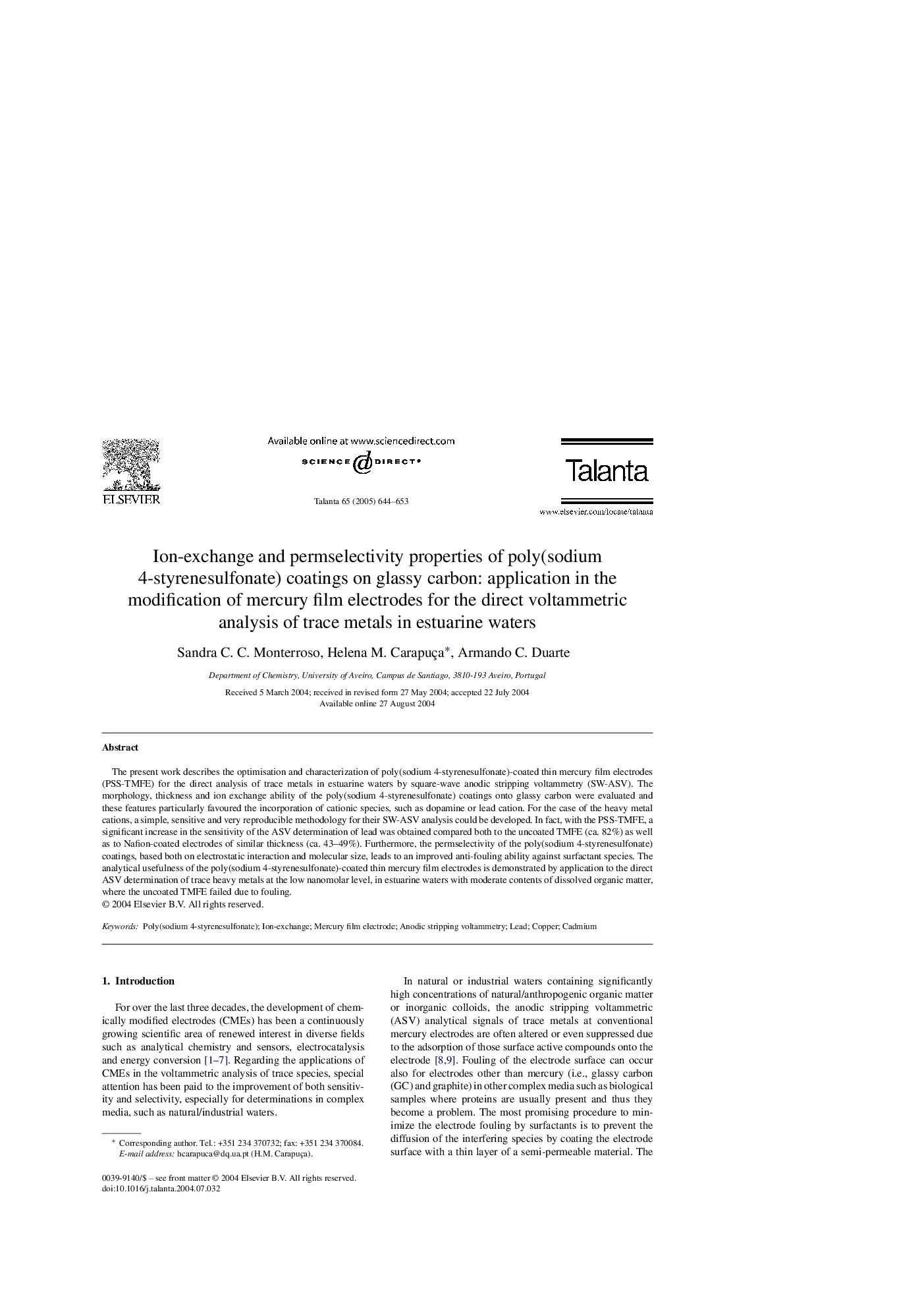| Article ID | Journal | Published Year | Pages | File Type |
|---|---|---|---|---|
| 10561571 | Talanta | 2005 | 10 Pages |
Abstract
The present work describes the optimisation and characterization of poly(sodium 4-styrenesulfonate)-coated thin mercury film electrodes (PSS-TMFE) for the direct analysis of trace metals in estuarine waters by square-wave anodic stripping voltammetry (SW-ASV). The morphology, thickness and ion exchange ability of the poly(sodium 4-styrenesulfonate) coatings onto glassy carbon were evaluated and these features particularly favoured the incorporation of cationic species, such as dopamine or lead cation. For the case of the heavy metal cations, a simple, sensitive and very reproducible methodology for their SW-ASV analysis could be developed. In fact, with the PSS-TMFE, a significant increase in the sensitivity of the ASV determination of lead was obtained compared both to the uncoated TMFE (ca. 82%) as well as to Nafion-coated electrodes of similar thickness (ca. 43-49%). Furthermore, the permselectivity of the poly(sodium 4-styrenesulfonate) coatings, based both on electrostatic interaction and molecular size, leads to an improved anti-fouling ability against surfactant species. The analytical usefulness of the poly(sodium 4-styrenesulfonate)-coated thin mercury film electrodes is demonstrated by application to the direct ASV determination of trace heavy metals at the low nanomolar level, in estuarine waters with moderate contents of dissolved organic matter, where the uncoated TMFE failed due to fouling.
Keywords
Related Topics
Physical Sciences and Engineering
Chemistry
Analytical Chemistry
Authors
Sandra C. C. Monterroso, Helena M. Carapuça, Armando C. Duarte,
